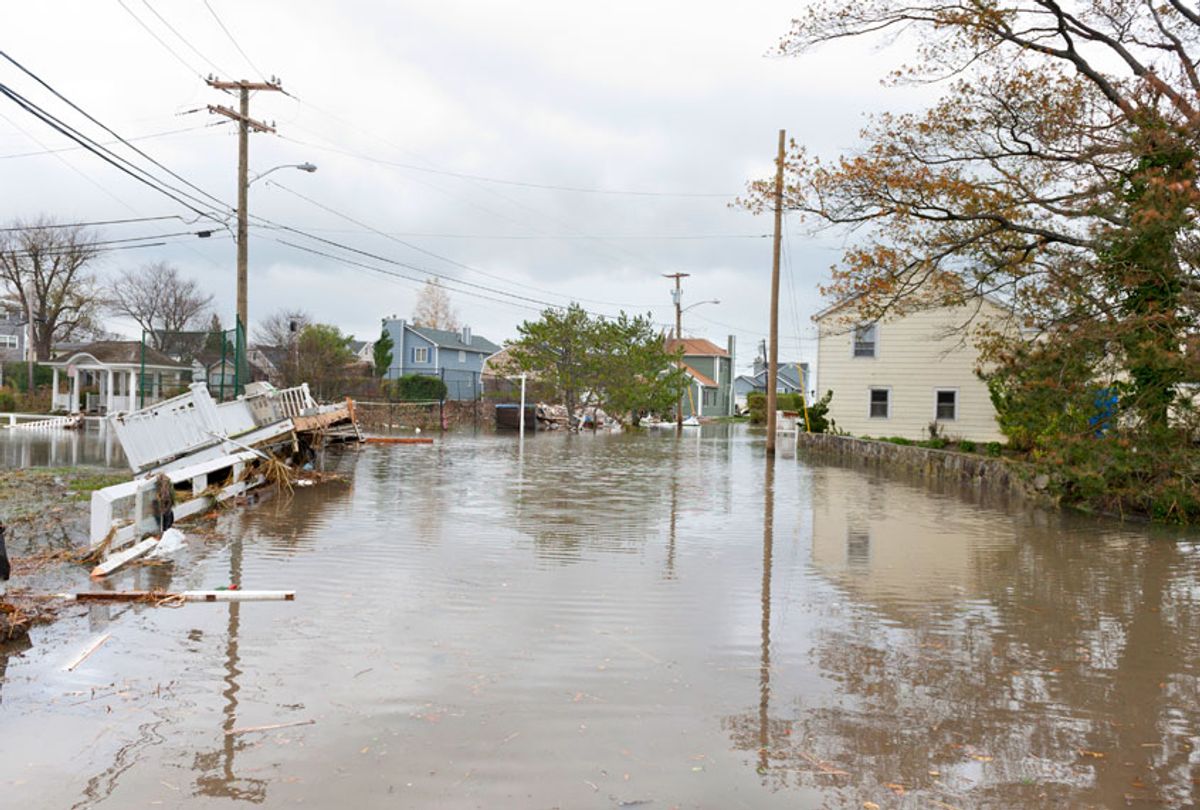Many of us fear climate change for its potential to disrupt ecosystems and fuel natural disasters, yet it is perhaps equally fearsome as a threat to global human health.
In an unprecedented study, which examined the research of 24 academic institutions and United Nations agencies, researchers issued a stark warning: Climate change will severely impact the health of millions of people, rich and poor, around the world.
The report, published Wednesday in the public health journal The Lancet, casts blame on a lack of initiative taken to cut carbon emissions and explains it will have an unknown impact on human health which will put a strain on already strapped public health resources.
“A rapidly changing climate has dire implications for every aspect of human life, exposing vulnerable populations to extremes of weather, altering patterns of infectious disease, and compromising food security, safe drinking water, and clean air,” the report states. “These impacts exacerbate transnational and intergenerational inequality, and compromise many of the national and global public health imperatives that doctors, nurses, and allied health professionals have dedicated their lives to.”
In others words, humanity is venturing into uncharted territory. Specifically, the report states, heat stress from rising global temperatures can lead to cardiovascular and kidney diseases. Heat waves will also impact the work of agriculture laborers, which could lead to tens of billions of hours of lost labor each year. The report states that in 2017, 62 billion more hours of work were lost due to rising temperatures when compared to the year 2000.
Extreme precipitation patterns such as heavy rains and droughts present their own set of challenges.
“Floods and extreme precipitation also have severe health implications, and 15% of all deaths related to natural disasters are due to floods,” the study explains. “In addition to immediate injury and death from flood water, longer-term impacts on health include spread of infectious disease and mental illness, both of which are exacerbated by the destruction of infrastructure, homes, and livelihoods.”
The report further explains that if climate change is left unmitigated, “an additional 1.4 billion drought-exposure events per year and 2 billion flood-exposure events per year by the end of the century” are to be expected.
Perhaps the most concerning point is that potential for infectious diseases.
“Changing climatic conditions are a key determinant for the spread and impact of many infectious diseases,” the study states. “Understanding how climate change is altering the environmental suitability for disease vectors, pathogen replication, and transmission is crucial to understanding the consequences for human exposure.”
In the United States, mosquito and tick-borne diseases are already on the rise. As many climate change experts clearly see a link between the diseases and a rising global temperature, the Centers for Disease Control and Prevention has held back from putting the association at the forefront of the warning, and from demanding that public resources be reallocated to combat climate change.
The report concludes by explaining that a severe public health crisis can possibly be overcome successfully once global efforts are made to reduce carbon emissions.
“The health impacts of climate change, and communities’ ability to adapt to it, both depend on the success of global mitigation efforts. But mitigation also has more immediate co-benefits arising from the changes in harmful exposures (eg, reductions in particle air pollution) and health-related behaviours that mitigation actions entail,” the report states. “Therefore, the pace of the low-carbon transition establishes the degree to which such benefits are realised.”



Shares